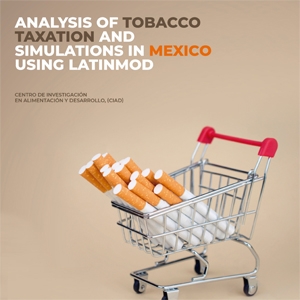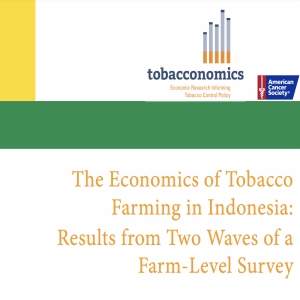

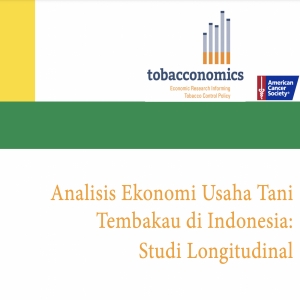
[BAHASA] Irisan antara Kebijakan Cukai Rokok dan Pertanian Tembakau di Indonesia
Pada bulan Desember 2020, Menteri Keuangan Republik Indonesia mengumumkan kenaikan tarif cukai rokok yang tidak terlalu signifikan yaitu dengan rerata sekitar 12,5 persen. Secara umum, pemangku kepentingan kesehatan publik memberi apresiasi atas kenaikan tarif cukai rokok ini. Namun, kenaikan tarif cukai rokok hanya akan berdampak pada harga rokok dan akhirnya konsumsi jika kenaikannya lebih tinggi dari yang telah diumumkan. Agar kenaikan tarif cukai rokok lebih efektif, tidak hanya kenaikannya harus lebih tinggi, pemerintah Indonesia juga perlu mengupayakan penyederhanaan struktur cukai seperti yang pernah dituangkan dalam Peta Jalan Simplifikasi Cukai Rokok, yang saat ini telah dihilangkan. Struktur cukai rokok dengan tarif cukai rokok yang berjenjang antar produk rokok memberikan ruang kepada perokok untuk beralih ke produk rokok yang lebih murah. Respon perilaku terhadap kenaikan cukai rokok berpotensi mengurangi dampak dari kenaikan cukai rokok terhadap pengurangan konsumsi. Read More
Interview: Dr. Frank Chaloupka Explains India's Score in the Tobacconomics Cigarette Tax Scorecard
Dr. Frank Chaloupka was interviewed by Swapna Raghu Sanand from Financial Express on January 13, 2021. He discusses India's low score in the Tobacconomics Cigarette Tax Scorecard and provides concrete steps for the government to improve the country's cigarette tax policies. Read More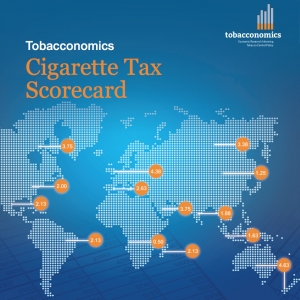

Tobacconomics Scorecard Shines a Light on the Untapped Potential of Countries' Cigarette Tax Policies
On December 15, 2020, Tobacconomics released the first edition of the international Cigarette Tax Scorecard, assessing the performance of cigarette tax policies in over 170 countries. Read MoreIntroducing Tobacconomics’ Tobacco Control Supplement: “The Economics of Tobacco Taxation in Low- and Middle-Income Countries"
Last year, we released a blog series describing the Tobacconomics approach to building think tank capacity. As the project concludes its fourth year, our partners have become adept at producing high-quality research on the economics of tobacco taxation. In this blog, we want to share some lessons learned over the past four years as well as overview our partners’ contributions to the recently released Tobacco Control Supplement. Read MoreNew Study Uses Four Different Approaches to Estimate Illicit Cigarette Trade in Brazil
Understanding the scope and nature of illicit cigarette trade is necessary for well-functioning administration. Analysis of illicit trade is needed to guide law enforcement activities, as it provides vital intelligence to customs, police, and other relevant agencies to protect markets and consumers from the inflow of illicit products. Additionally, since the effectiveness of tobacco control measures, including the effectiveness of tobacco taxation, is affected significantly by the availability of illicit products, knowledge about the scope of illicit cigarette trade helps policymakers evaluate newly-implemented tobacco control policies as well as predict the impact of future policies. Read More
The Pass-Through of Alcohol Excise Taxes to Prices in OECD Countries: Filling In the Evidence Gap
Increasing alcohol excise taxes is the most effective regulatory policy to reduce excessive drinking and related harms. Tax pass-through rates measure how much prices increase when taxes are increased by one unit – a critical step in the mechanism of excise taxes as an alcohol control policy. If prices are increased more than tax increases (i.e., tax pass-through rate > 1), the reduction of alcohol consumption will be higher, and vice versa. Read More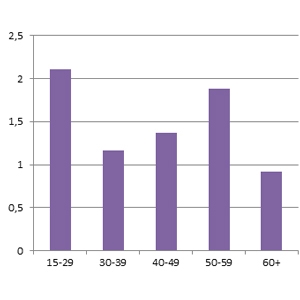
World No Tobacco Day 2020: Tobacco Taxes Are a Powerful Tool Against Tobacco Industry Efforts to Attract Youth
Sunday, May 31, 2020 is World No Tobacco Day and this year’s theme focuses on efforts by the tobacco industry to target young people. Raising tobacco taxes is one of the most effective tobacco control policy tools to discourage tobacco use in the overall population, but even more so for young people. In observation of World No Tobacco Day, this Tobacconomics blog entry highlights research from our partners around the world that demonstrates how increasing taxes on tobacco products is a particularly effective policy to prevent and reduce tobacco use among young people. Read More